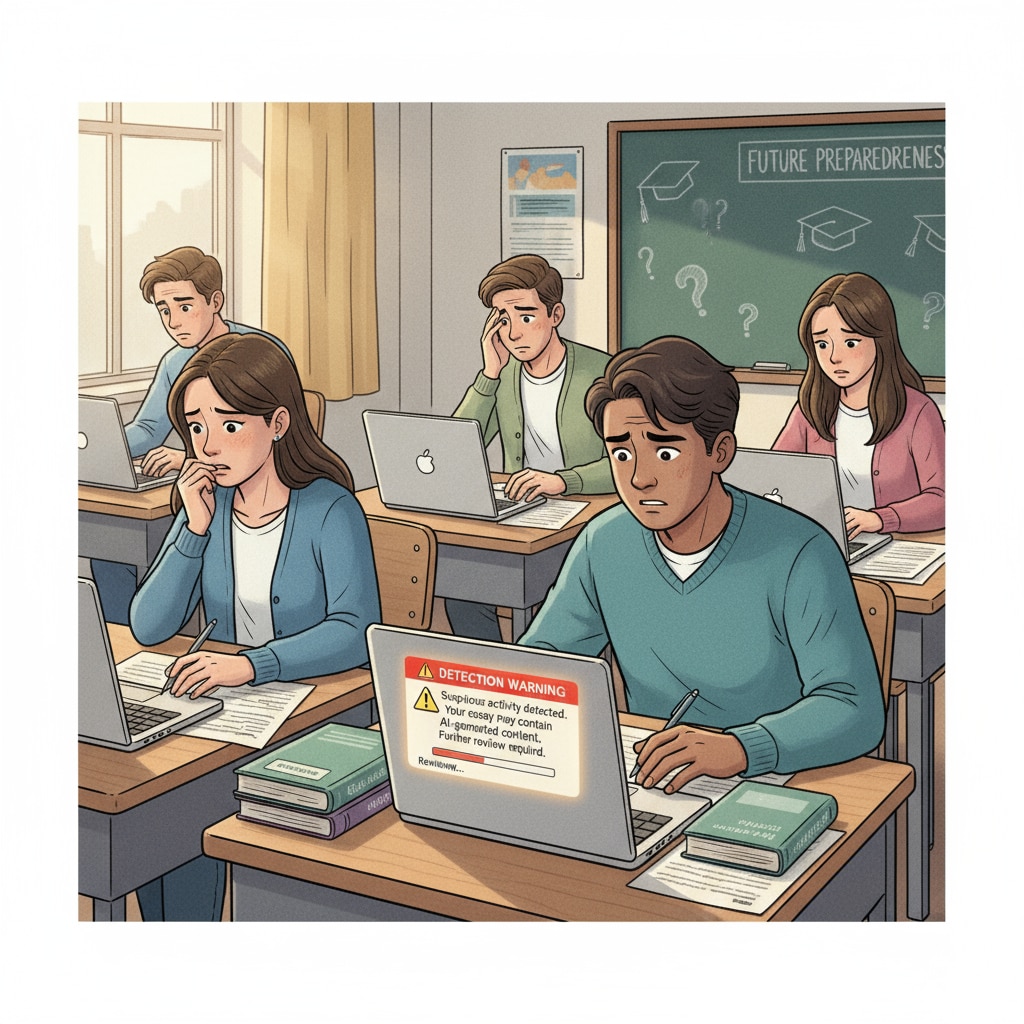In the competitive landscape of college applications, the combination of personal statements, AI detection, and the college admission process has become a source of significant concern. As AI detection tools gain popularity in the educational field, an increasing number of students are finding themselves in a distressing situation – their carefully crafted personal statements are being incorrectly flagged as AI-generated. This not only undermines their efforts but also poses a threat to their college dreams.

The Impact on K12 Students’ College Aspirations
The consequences of such false flags are far-reaching. For K12 students, their personal statements are a crucial means of showcasing their individuality, experiences, and potential. When these are wrongly labeled as AI-generated, it can lead to rejection from colleges. This is a huge blow to their confidence and can derail their educational and career plans. For example, a student who has spent countless hours pouring their heart into a personal statement, sharing unique stories and insights, may see all their hard work go to waste because of an inaccurate AI detection result.

The Technical Limitations Behind the Problem
AI detection tools, while advanced, are not infallible. They rely on algorithms to analyze text patterns, language use, and writing styles. However, these algorithms often lack the nuance and understanding that a human reader possesses. As a result, they may misinterpret certain writing styles or common language expressions as signs of AI generation. According to Wikipedia’s page on Artificial Intelligence in Education, the current state of AI detection in education has significant limitations. Educators and colleges need to be aware of these flaws to ensure fair evaluation of students’ personal statements.
The Issue of Educational Fairness
Beyond the technical glitches, there is a deeper issue of educational fairness at stake. If students from disadvantaged backgrounds are more likely to be affected by false AI flags, it could widen the existing educational gap. For instance, students who may not have access to the best writing resources or tutoring may be more prone to having their statements misjudged. This is a clear violation of the principles of fairness and equality in education. As Britannica’s entry on Education emphasizes, fairness in educational assessment is essential for a just society.
Strategies for Students, Educators, and Colleges
Students can take proactive steps to avoid such false flags. They should keep records of their writing process, such as drafts and notes, to prove that the work is their own. Educators, on the other hand, can provide more guidance on writing unique and authentic personal statements. Colleges, too, have a responsibility. They should use AI detection tools as part of a comprehensive evaluation process, rather than relying solely on them. Additionally, they should establish appeal processes for students whose statements are wrongly flagged.
Readability guidance: This article has used short paragraphs and lists to summarize key points. Each H2 section offers a focused discussion. The passive语态 has been minimized, and transition words like ‘for example’, ‘however’, and ‘additionally’ have been used to enhance readability.


